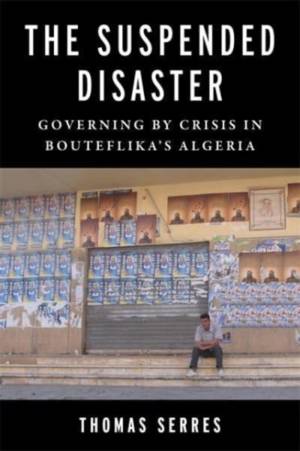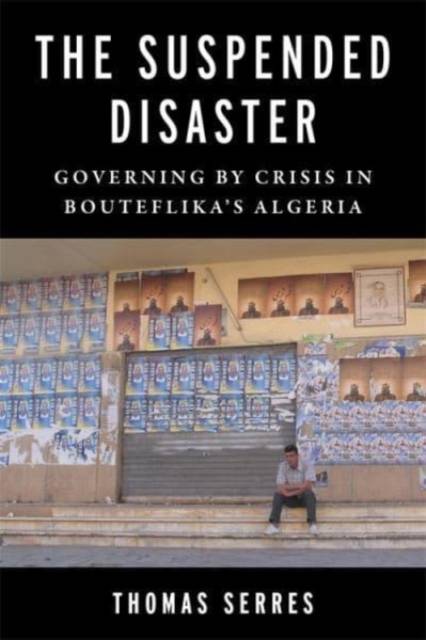
- Retrait gratuit dans votre magasin Club
- 7.000.000 titres dans notre catalogue
- Payer en toute sécurité
- Toujours un magasin près de chez vous
- Retrait gratuit dans votre magasin Club
- 7.000.0000 titres dans notre catalogue
- Payer en toute sécurité
- Toujours un magasin près de chez vous
237,45 €
+ 474 points
Format
Description
After Algeria's president Abdelaziz Bouteflika announced his intention to run for a fifth term in early 2019, a popular peaceful uprising erupted calling for change. Bouteflika, who had been in office since 1999, was eventually forced to resign, but the Hirak ("movement") continued to protest the country's inequalities and entrenched ruling elite.
The Suspended Disaster examines the dynamics of the Algerian political system, offering new insights into the last years of Bouteflika's rule and the factors that shaped the emergence of an unexpected social movement. Thomas Serres argues that the Algerian ruling coalition developed a mode of government based on the management of a seemingly never-ending crisis, marked by an obsession with security and the ever-present possibility of unrest, violence, and economic collapse. Identifying this form of rule as "governance by catastrophization," he shows how attempts to preserve the status quo through emergency policies and constant reforms can also lay the groundwork for a revolutionary situation. Serres contrasts the government's portrayal of perpetually imminent disaster with the uncertainty, precarity, and indignity experienced by much of the population, which fueled the rejection of ruling elites, a profound mistrust toward institutions, and new spaces for grassroots opposition. Based on extensive fieldwork and theoretically novel, The Suspended Disaster sheds new light on the political, economic, and social processes underlying an uprising that changed the face of Algerian politics.Spécifications
Parties prenantes
- Auteur(s) :
- Editeur:
Contenu
- Nombre de pages :
- 432
- Langue:
- Anglais
- Collection :
Caractéristiques
- EAN:
- 9780231212021
- Date de parution :
- 05-09-23
- Format:
- Livre relié
- Format numérique:
- Genaaid
- Dimensions :
- 152 mm x 229 mm
- Poids :
- 802 g

Les avis
Nous publions uniquement les avis qui respectent les conditions requises. Consultez nos conditions pour les avis.






